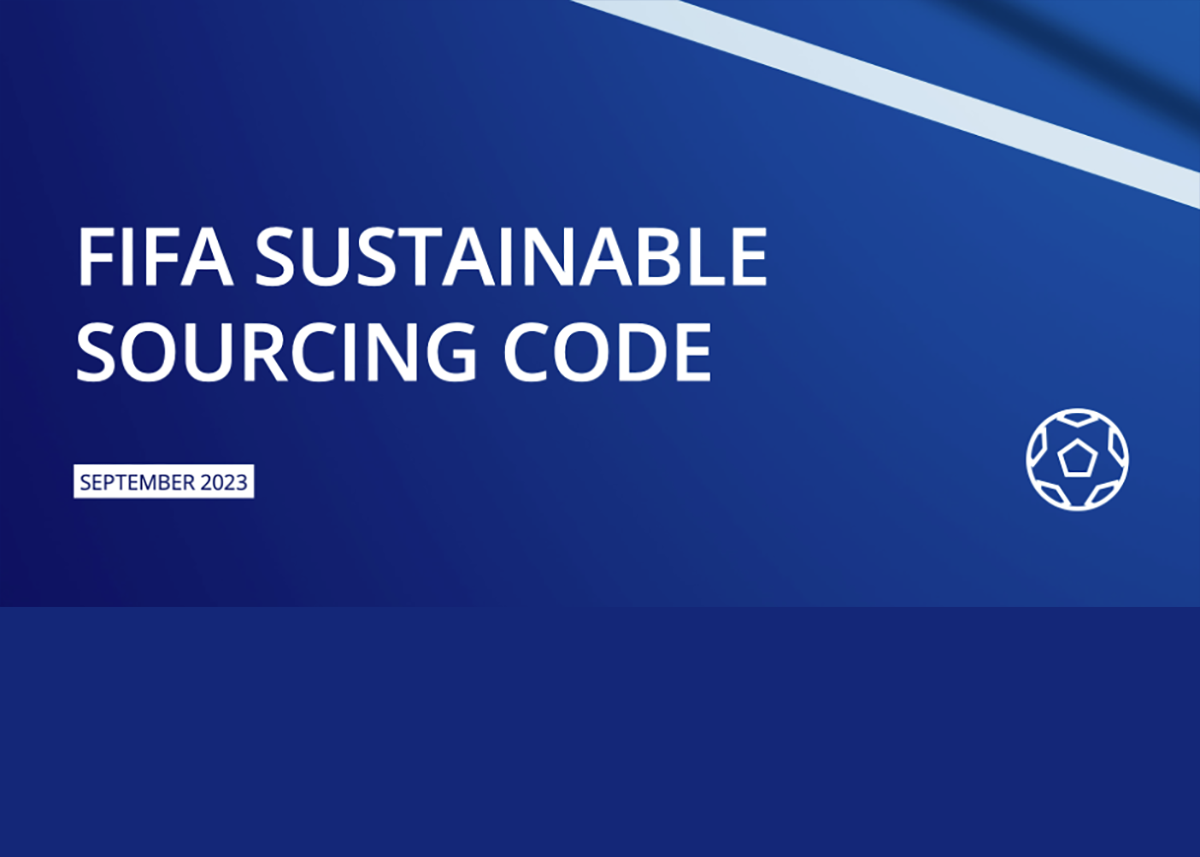FIFA Supplier Standards: Your Sustainability Guide
Discover FIFA supplier requirements: sustainability standards, human rights, supply chain management. Your guide to global sports partnerships.
Discover FIFA supplier requirements: sustainability standards, human rights, supply chain management. Your guide to global sports partnerships.

By Elke Porter | WBN News World Sports | September 8, 2025
Subscription to WBN and being a Writer is FREE!
Becoming a FIFA supplier represents more than just a business opportunity—it's a commitment to actively contribute to the future of sustainable sports on a global scale. FIFA, as the world's governing body for football, has established comprehensive sustainability standards that extend far beyond the pitch, creating a framework that transforms how business is conducted throughout the sports industry.
The FIFA Sustainable Sourcing Code represents a fundamental shift in how international sports organizations approach their supply chains. This comprehensive framework aligns with the United Nations Sustainable Development Goals and incorporates internationally recognized standards, including the OECD Guidelines for Multinational Enterprises and UN Guiding Principles on Business and Human Rights. For potential suppliers, this means embracing a holistic approach to sustainability that encompasses environmental stewardship, social responsibility, and ethical business practices.
FIFA explicitly positions its requirements as minimum, not maximum, standards. This distinction is crucial for suppliers who must view compliance not as a ceiling but as a foundation for continuous improvement. The organization encourages suppliers to implement policies and deliver goods and services that exceed these baseline requirements, fostering innovation and leadership in sustainable business practices.
One of the most significant aspects of the FIFA commitment involves cascading sustainability requirements throughout entire supply chains. Suppliers must ensure that employees, subsuppliers, subcontractors, and all third parties acting on their behalf comply with the Code. This comprehensive approach creates accountability at every level and drives systemic change across industries.
FIFA employs rigorous monitoring and evaluation systems to assess supplier performance across all relevant areas. The organization conducts continuous risk assessments by supply-chain category, sector, and region, using these analyses to inform enforcement strategies. Suppliers who fail to maintain compliance may face contract termination or exclusion from future business opportunities.
Suppliers must be prepared to cover costs associated with rectifying non-compliance issues. This financial responsibility underscores the importance of proactive sustainability management and the integration of these principles into core business operations from the outset.
Potential suppliers must prepare for comprehensive requirements across multiple domains, with three critical areas demanding immediate attention: human rights protection (including labour standards and anti-discrimination policies), environmental stewardship (covering climate action and resource conservation), and supply chain management (ensuring all sub-suppliers meet FIFA's sustainability standards). The complete scope encompasses over 15 distinct areas ranging from business ethics to community engagement. For a detailed breakdown of all requirements, suppliers should review the comprehensive areas of consideration available in FIFA's documentation.
For forward-thinking organizations, FIFA supplier status offers the opportunity to align with a globally recognized brand while developing sustainable business practices that provide long-term competitive advantages. Companies that successfully navigate these requirements position themselves as leaders in the evolving landscape of responsible business conduct, creating value that extends well beyond individual contracts with FIFA.
Contact Elke Porter at:
Westcoast German Media
LinkedIn: Elke Porter or
WhatsApp: +1 604 828 8788.
Public Relations. Communications. Education